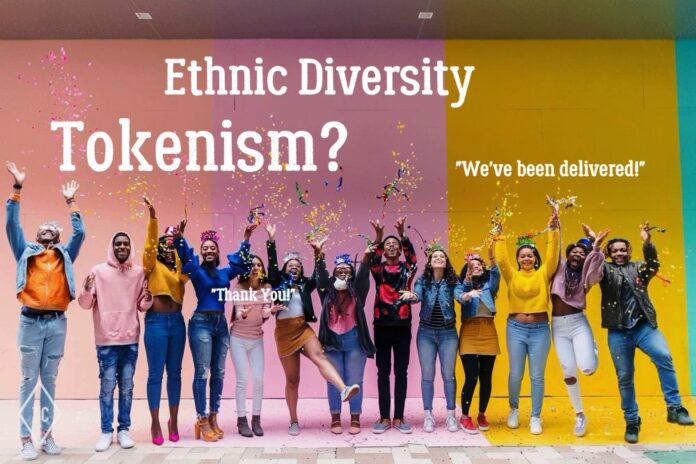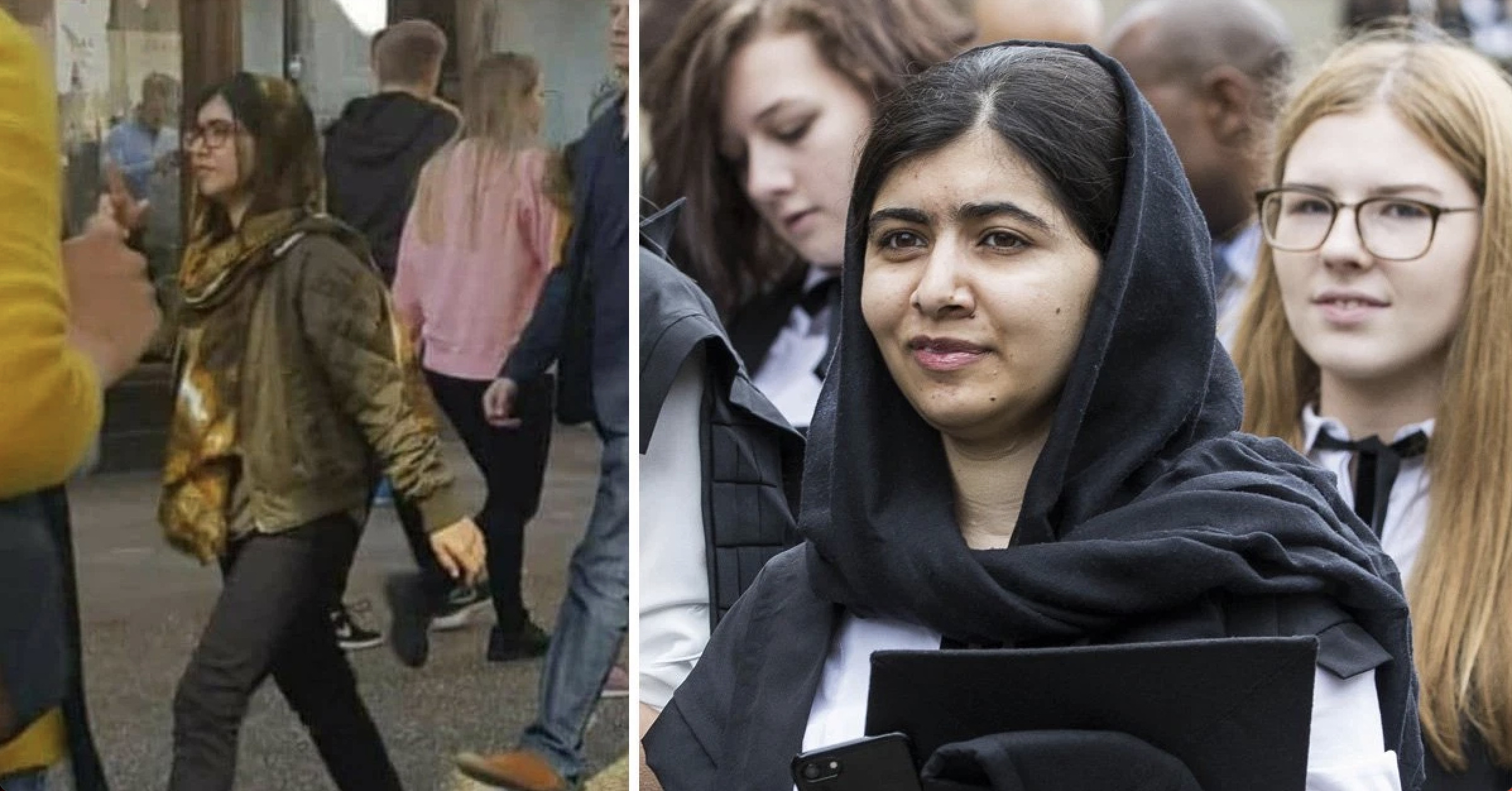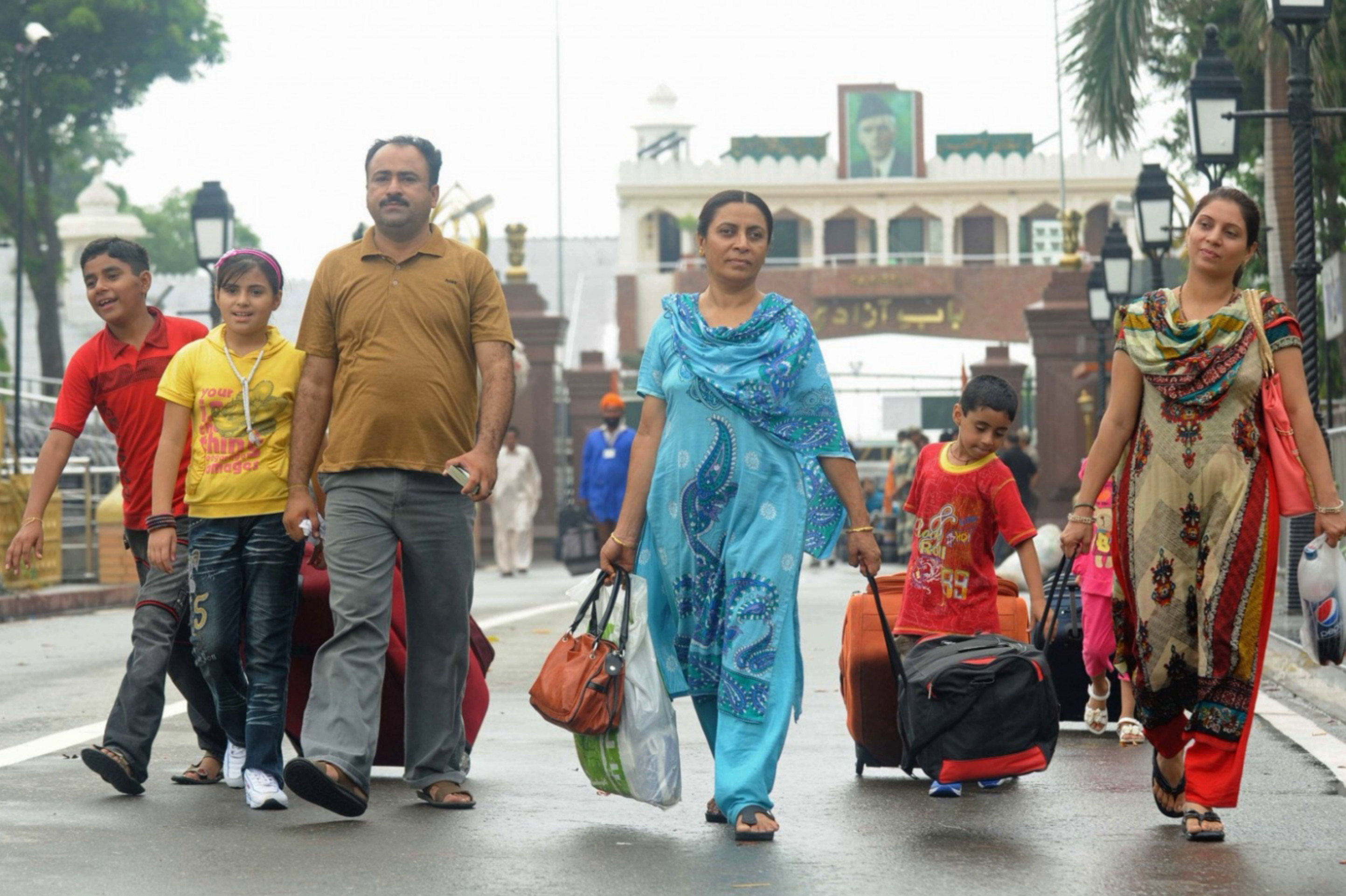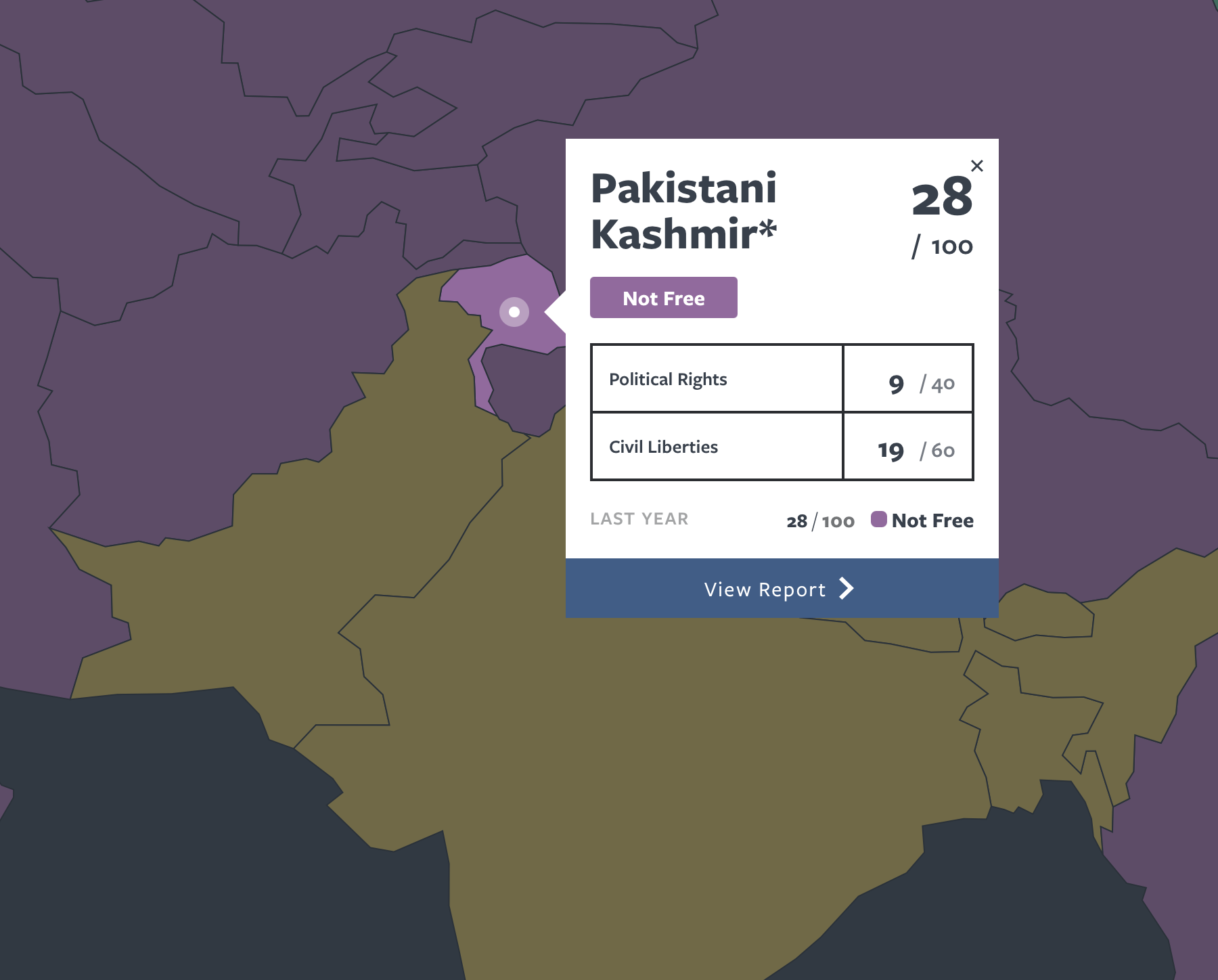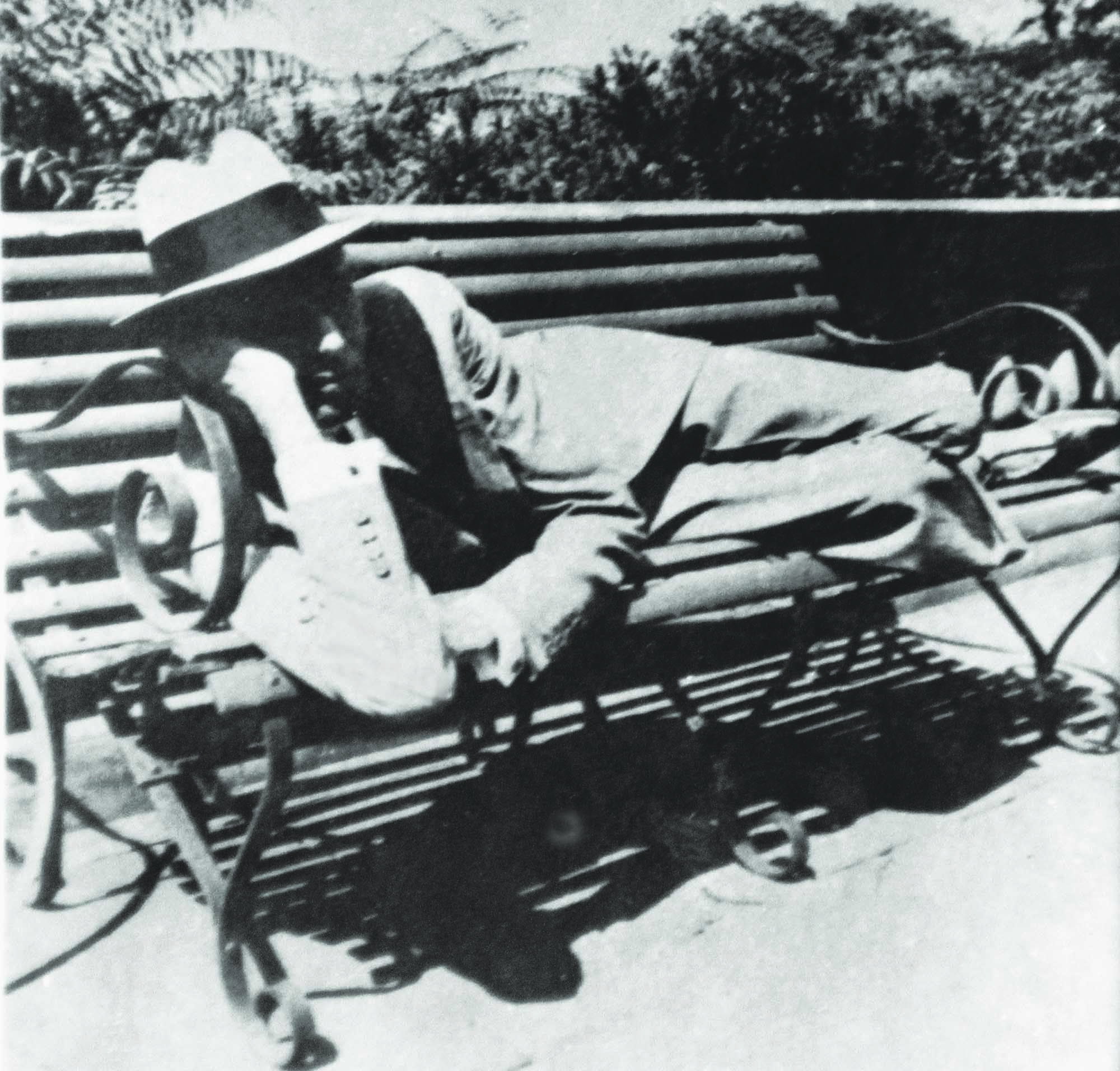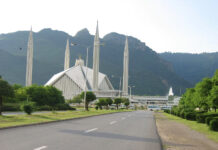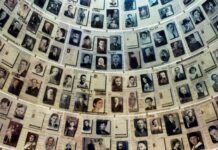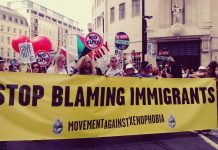There was a time when you could walk into any local Labour Party branch meeting in the densely populated Pakistani constituency wards of England, and you would realise that something was breathtakingly afoot. The room would be overcrowded. Almost entirely male-dominated with the usual suspects, a few white men exuding a sense of importance. There would be an unequal mix of young and old flocking together like sheep trying to work out where to sit. Non English speakers were the majority.
Surely this wasn’t true for younger attendees?
With their nonchalant facial expressions and their indifference to the procedures underway, they too had been dragged to the occasion and understood very little of the proceedings. Upon closer scrutiny and the odd probing in the ethnic vernacular, you’d realise that they were all related and from the same place in Pakistan.
This was the type of local democracy foisted onto Britain’s Pakistanis in the 1980s and 1990s. Once the proceedings got underway earnestly, the entire exercise in democracy degenerated visually and effortlessly into gatherings reminiscent of Lahore and Karachi.
It is here my readers will start raising their eyebrows, “this is insensitive and offensive stuff to Pakistanis. These are negative stereotypes about a protected minority!” I’ve spent a lot of my adult life trying to understand prejudice, group behaviours and stigmatised identities because I come from a minority within a minority; I have what some would call, “skin in the game”.
I encourage my readers to visit Pakistan, a country that is largely missing from the tourist trail for reasons I need not explain here. They can then observe first-hand the undemocratic norms on display to appreciate the linkages I speak of. If that’s not possible, they could read something of Pakistan’s governance problems from reputable sources.
Pakistanis in the UK are a minority. Like all BME communities they deserve protection from racism and demeaning descriptions. Some liberals feel uncomfortable when minorities are generalised, stereotyped and caricatured negatively. I get that. But how should they react when ethnic minorities behave egregiously to their own minorities in their daily interactions? And what would they say, if they were told that the demeaning narratives usually come from native informants, and not from the mainstream, because the designated “ethnic tokens” police their own group boundaries?

I would like to point out that minorities in Pakistan are “endangered” – an interesting concept if you actually think about what is implied. Who’s telling us this? The human rights people affiliated with the United Nations and NGOs like Amnesty International and Human Rights Watch. Conversely speaking, no minority, ethnic, religious or ideological group is endangered in any genuine liberal democracy. This is not something that we should be bragging about in the West, it’s something we’ve all come to expect on account of our shared humanity.
In the UK, the quality of life for ordinary Muslims surpasses anything remotely similar for non-Muslims and minorities disempowered by the dominant group in Pakistan. Pakistanis may be denied jobs in Britain because of the colour of their skin or their foreign sounding names (we call this discrimination, and it happens in every country), but in Pakistan, members of minorities are disappeared, murdered and robbed of their assets through casual accusations of blasphemy and treason (we call this persecution, and it only happens in despotic countries).
In Britain, we have a functioning legal system and a resilient political culture that tries to empower traditionally dispossessed groups. The litmus test of any true democracy is how minorities are treated, we are told. In Pakistan, we have a Military Complex that plays minorities against each other, using the old colonial rule book of divide and rule. It empowers the dominant group to its advantage, whilst disempowering everyone else.
Pakistanis in positions of power in the UK rarely speak out against such structural injustices and indignities, because they come from the majority community in Pakistan, what sociologists call the dominant group. They never speak ill of the Army, ever, which is profound proof of where fear resides; speaking truth to power is not exactly a good career move. But, they have no equivalent fears maligning democratically elected Pakistani politicians as corrupt, a populist narrative that only benefits non-democratic forces.
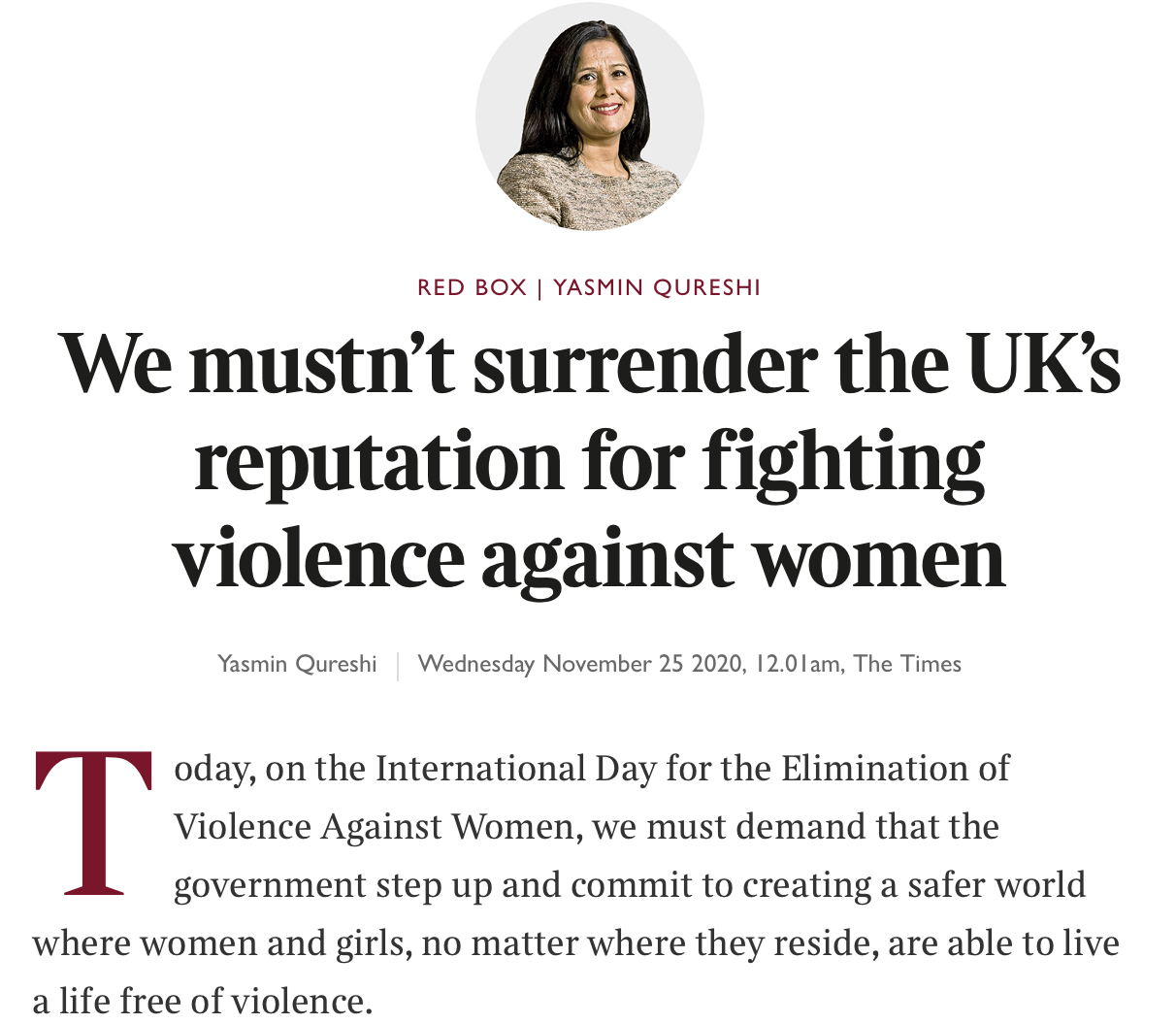
One just needs to look at the deplorable treatment of Maryam Nawaz Sharif to understand the pathology of popular hate that exists for women in Pakistan, and how the intelligence services play the ‘virtuous’ society against ‘immoral’ women. The military ousted her father from power, Nawaz Sharif, because he was adjudged corrupt.
But, by who?
The Military.
The Military, incidentally, owns the courts and the judges too. It controls the Media and various extremist networks. The Intelligence Services (ISI) castigated Maryam Sharif in the same light as her father. The frenzy of hate they stirred up throughout Pakistan’s media machine is cleverly managed, but more importantly, is a good reflection of why Pakistan is faltering to the point of imploding. There is a civil war of attrition going on that is bubbling below the surface.
British Pakistanis have no skin in the game when they rebuke the Swiss or French governments for alleged majoritarian discrimination against Muslims, face-veil or Mosque-Minaret bans, unlike Pakistan’s Pashtun, Baluch, Ahmedis, pro-independence Azad Kashmiris, the LGBT, liberals, feminists, atheists, secular humanists, or a 15 year old girl advocating for female education.
The people who shot Malala Yusuf in the head were clients of the Pakistan Army not so long ago. The Taliban were educated in Pakistan’s religious seminaries, Deobandi ones to be specific, trained and funded by the ISI. Yusuf ended up in Birmingham to receive corrective surgery, where she attended a fee-paying school for girls. Pakistanis in Britain have been drip fed the idea that she is a CIA Agent! Not only was she rubbished online, but Birmingham was rubbished, apparently, a horrible place for the bad sorts of Pakistani immigrants to understand the nature of ISI propaganda.
When pictures emerged of her at Oxford University, Twitter was alight with mean comments about her “immodest dress”. She was wearing skinny jeans under her headscarf, this proved she was immoral and a western agent! The fake accounts triggering these conversations lit the flame, and then disappeared into the ethers of social media manipulation. This is how the ISI operate. But, the protagonists recycling the claims came from the dominant group, from Lahore, Karachi and Islamabad, who have been maltreating minority groups for decades.
Malala Yusuf comes from the ethnic Pashtun minority to appreciate the actual social subtext. She was triply screwed, being an ethnic Pashtun, female and from a rural area. Internet accessibility for the Pashtun, or the Baluch, is limited because of the terrible infrastructure in rural areas – this disempowerment is deliberate. Internet cafes are the domain of men. The same set of circumstances apply to Pakistan’s Kashmir region, these areas are deliberately disinvested to stop the minorities rising up and collaborating together against an unjust social order.
The Pakistani trolls spurting hatred against Indians and Jews operate out of Pakistan’s sprawling urban areas, and they have a profound loathing for liberals in particular. When one follows the journey of such hate, all roads lead back to Rawalpindi, the headquarters of Pakistan’s intelligence services.
But it gets worse. As weird as this may sound to my liberal detractors, lots of us have learnt that expressing dissent at the ubiquitous levels of inequality in Pakistan can directly impact our lives in the UK. As soon as there is a curious whiff of racism (“did you really say that Pakistanis committed a genocide against Bengalis or that minorities are treated like crap in Pakistan”), we dissidents become controversial and a potential problem. Take for instance, employment opportunities; recruitment consultants like everyone else are now spying on their prospective clients’ social media accounts – we have google to thank for that, whatever is deemed politically incorrect, despite being evidence-backed, will have a direct bearing on suitability.
Political correctness isn’t just a problem for ‘privileged white males’ speaking their mind (a slur if one contextualises what happened to Lawrence Fox; you don’t have to agree with his views to endorse the wider point I’m making), but dissidents of authoritarian regimes living in the UK. This proposition is quite scary, anyone who dares speak his or her mind, can be silenced through accusations of intolerance against minorities, a punitive measure to control the narratives we all take for granted. The same sorts of tyrants controlling Pakistan, know exactly how to undermine democratic norms in the UK.
How is this good for freedom of thought and expression?
Exactly which values are being protected when prospective employers, or political parties, casually looking at social media accounts, want to tread carefully, so not to offend ethnic minorities, who, oddly enough, have no such qualms persecuting their own minorities?
Expressing disgust at such antics in the UK should not elicit forfeiture of opportunities because political correctness demands we appear to be anodyne. Cultural relativism is a bad idea, not all cultures are equal, and not all minorities should be afforded the same deference. Should Britons countenance the return of widow-burning in India because of cultural sensitivities? Colonial Briton outlawed this practise, and not the English-speaking Indian elites lecturing Britain about its colonial predatory behaviour. There was a time in 19th century Britain, when everyone thought being ‘white’ (poor whites were excluded), racially speaking, made a person superior to ‘non-whites’; should we have accepted this cultural claim through a relativist perspective? Some minorities behave like tyrants and thought-police when they’re majorities, whilst others don’t, because of the values they hold; the former justify their actions through the identities they embody, they can’t resort to values, right? When identity politics becomes about controlling the narratives, we’re left with blatant contradictions and inconsistencies
I’m keen that my readers understand what I’m trying to say.
I’m making the case that democracy has been subverted within the British-Pakistani community because the Pakistanis talking about democracy, human rights and minority protections have no genuine commitment to democratic values – they have no skin in the game. Minorities are endangered in Pakistan. No one from the West is seeking asylum in Pakistan; Pakistanis are dying to get out of Pakistan, because it is a cruel place for the weak and powerless. Hindu Pakistanis are currently seeking asylum in India.
The demographic trend for Hindus in Pakistan is downwards. They’re escaping.
How many Muslim Indians are seeking asylum in Pakistan? There are as many Muslims in India as there are in Pakistan, so, why is there no mass exodus of Muslim Indians into Pakistan? Yet, everyone knows about the plight of Hindus in Sindh and neighbouring areas.
The demographic trend for Indian Muslims is upwards. They’re staying put.
These insights speak for themselves, these are facts and not bullshit.
There is no parity between India and Pakistan when it comes to democracy and the co-existence of minorities and majorities. Pakistan’s Muslim Supremacists are worse than India’s Hindus Nationalists. How should we understand this comparison within the context of cultural relativism in the UK and minorities within minorities? Of Britain’s 1 million Azad Kashmiris, a group that had its ancestral homes flooded by the Pakistan State in 1967, they were dislocated overnight. When they protested, there was a brutal crackdown by the Pakistan Army and the Azad Kashmir government. Their acquiescence was forced through the barrel of a gun, this is the ugly reality of Pakistan.
By definition, authoritarian regimes always police dissent through force of arms and manipulation (‘divide and rule’), and not a liberal culture of accommodation.
There were no consultations or adequate compensation programmes, the only people who got compensated knew how to play the Pakistani system of patronage and bribes. Everyone else got screwed. The fortunate few because of the old Mirpuri transnational network, much older than Pakistan’s creation, headed for Britain to join other Azad Kashmiris. But, even this history is rubbished by Pakistan’s official custodians of narrative – the online trolls. Apparently, the Mangla Dam was a blessing for Mirpuris because the forced dislocation liberated them from Pakistan’s poverty “…and shitty villages”, (this is a direct quote) all 110.000 people shifted to the UK, an outrageous lie if one understands what’s really being argued.
It is at this point British-Pakistanis insist on just being British, or Muslims, “How is Pakistan my problem, I live in the UK?” “I’m just a Muslim!” They retort.
Conveniently dislocating themselves from the ethnic tokenism that empowered them in the first place, they wash their hands of Pakistan adding their own insults against corrupt rulers they despise with a passion. It gushes out viscerally.
Crucially, the British State has been empowering, almost facilitating, unintentionally I note, which Pakistanis have the ear of officials, nationally and locally, and they don’t come from the minorities. The State has been complicit in the very process that has disenfranchised thousands of ordinary people because of an identity label. The State has been officiating ethnic minority identities to the exclusion of minorities within minorities – lots of British Pashtun, Baluch, Azad Kashmiris, Christian Pakistanis, Ahmedis, are being returned as Pakistanis in official censuses.
Would we demand that stateless Jews return themselves as citizens of the Third Reich because they’re Germans?
What kind of stupid logic is this?
The correct identity labels for disenfranchised groups matter, not just within a particular political culture, but outside it. The group label raises an awareness through which the dispossessed of a wider population can mobilise, garnering support for liberal values that the Free World takes for granted. When dissidents advocate against a particular group identity, they are exposing the structural inequalities behind that identity.
When one thinks of the Rohingya, what comes to mind? When one thinks of the Yazidis, the Bosnians, Tutsis, the Bengalis, the Armenians, the Jews, the Kurds, the Kashmiris, the Baluch, the Palestinians, what comes to mind? State oppression, injustice and genocide in varying degrees, rightfully or wrongfully. And yet, in the UK, 1 million Azad Kashmiris are being forcibly categorised as Pakistanis.
In this series of discussions, I will explain how and why this is happening with specific reference to my own ethnic minority status. I speak from a particular lived experience motivated by principles of liberalism and European enlightenment values. I don’t get paid for doing this; I’m not an Indian agent, it’s something I believe in, and I refuse to associate with people milking the Kashmir Conflict for opportunities, platforms and book deals, setting up charities and organisations funded by taxpayers. I’m not a pro-independence Kashmiri either when I express disquiet at Pakistan’s antics in its so-called Free Kashmir region. The Azad Kashmiris banging on about Pakistan’s corrupt ways are just as undemocratic as Pakistan’s ruling networks, but there is a key difference. Pakistan is oppressing Azad Kashmiris, and not the other way round.
We shouldn’t get it twisted, Azad Kashmiris are not oppressing Pakistanis. Pakistanis are oppressing Azad Kashmiris, that’s the nature of the problem.
That said, I know exactly from where I am deriving my frame of reference when expressing my political grievances, and I would like to be honest about it. I’m not influenced by Fiqhi juristic codes of the 8th century or theological paradigms of the 9th century; anti-imperialist resistance narratives of the 19th century; radical “isms”; or personal vested interests of 21st century opportunists virtue-singnalling their way to a podium. I speak through a particular lived experience operating within a very European universe of meaning committed wholeheartedly to classical liberal values.
I am opposed to the ongoing hypocrisy behind the miasma of a British Pakistani identity that benefits select actors from mainstream Pakistani groups. There is profound hypocrisy in how some Pakistanis behave. The same Pakistani voices shedding crocodile tears for Palestinian Arabs in Israel are strategically silent about the Turkic speaking Uighur in China? The same Pakistan Project that is trying to court the Turkish Turks today, (they’re dubbing a highly romanticised version of Ottoman history into Urdu), were encouraging British Indian Muslim soldiers to fight against the Ottomans during the World Wars.
Islam, apparently, is the common denominator in such scenarios.
Imagine that?
So, where exactly is Islam in those considerations?
Just before the partition of British India, the Muslim League credited for the partition of India, was courted by the British Indian Government to encourage Indian Muslims to fight the Ottomans during World War I and II. The Congress Party opposed the enlistment of Indian soldiers in Britain’s colonial wars, and they were imprisoned for their defiance.
This would be akin to Muhammad Ali, an African-American dissident, refusing conscription into the American Army during the Civil Rights years, his words still resonate with us, “why should I go and fight yellow men in another part of the world for freedom, when black people are not free in America?”

Muhammad Ali wasn’t just a professional boxer, he was a political dissident, and was stripped of his heavyweight title.
Dissidents come from all walks of life.
The first prime minister of an independent India, Jawarhal Lal Nehru used to go in and out of prison. The first prime minister of Muslim Pakistan, Muhammad Jinnah, used to buy his suits from Saville Row, London. He used to eat pork, drink whiskey and was accused of being more English (colonial) than the English bourgeois. He was in all likelihood an atheist, each to his own – I mean that sincerely, but yet he was telling Indian Muslims that they were a separate nation to Hindus! He never spent a day in prison for his ideological convictions. Jinnah is worshipped in Pakistan oddly by Muslim Supremacists, who think he’s some holy person; the Taliban absolutely loath him. On the other hand, Nehru is positively disliked by Hindu Nationalists. Gandhi who inspired the likes of Martin Luther King, was assassinated by a Hindu Nationalist.
History has a knack of throwing up funny inconsistencies. For instance, Rajip Tayyip Erdogan has always had a problem with Turkey’s anti-democratic military, the secular Kemalists. He too was incarcerated for a time. Members of Erdogan’s circle have a genuine commitment to the Muslim beliefs they espouse, rightly or wrongly. Erdogan is a devoutly religious man who has strong religious convictions; convictions should be respected irrespective of the corresponding beliefs. Sincerity demands that people speak their truth honestly. I have profound respect for Erdogan because he speaks his mind and walks the walk. His party has been credited with taking millions of rural people, Turks and Kurds, out of poverty. I don’t necessarily agree with his increasingly authoritarian style of governance though.
Now he’s in power, he doesn’t seem to have qualms with Pakistan’s Military Complex that has overthrown democracy and owns an entire State to exploit. So, was there any difference between Turkey’s secular military that imprisoned Erdogan and Pakistan’s Islamic military that is courting Turkey?
I’ll tell you the difference. Turkey’s secular military remained loyal to Mustafa Kemal Ataturk’s project, they saw themselves as protectors of that vision, and they grew increasingly authoritarian against devout Muslims and human rights activists. Pakistan’s Military Complex has never been loyal to anything, or any one person, not even the secular founder of Pakistan, the “Quaid-e-Azam”, the “father of the nation”. Instead, the Military pretends to be the defender of Islamic values when in fact it is ripping off a nation of 220 million people. It owns the economy and sets its own budget, the Executive branch of Government has no control over the Army. Pakistani Generals are Kings, they are untouchable. Their families are simultaneously patriots of Pakistan and beneficiaries of state-endowed corruption. They operate outside Pakistan’s ineffectual laws which only apply to the poor and powerless. The only real war the Pakistan Army is fighting is against dissidents. The Pakistan Army has murdered more Pakistanis in the past 70 years than non-Pakistanis in the pursuit of power, privilege and entrenchment.
Just let that sink in?
In layman’s terms, Pakistan’s obsession with Militarism has turned out to be a scam. The Army needs an Indian bogeyman and dodgy politicians to ritually scapegoat, ensuring its survival and privileges. The Army is very good at lobbying Western and Muslim countries for aid, offering itself up for mercenary services. The West and Arab countries are now turning their back on Pakistan because of its Army’s duplicity. It just can’t be trusted, which has forced Pakistan to turn to China, a country that will, in time, own Pakistan and her port in Gwardar, Occupied Baluchistan. China is not the West, and there will be no going back for Pakistan once the country defaults on Chinese loans.
But, isn’t it interesting that the Far Right, Hindu Nationalists and Muslim Supremacists all behave the same, speaking of identical grievances against the “outsider”, whilst romanticising an idyllic past that they were never part of? Today’s Far Right were never part of a “white Aryan nobility class” anymore than Pakistan’s Ruling elite have connections with India’s Muslim nobility class, the Persian speaking Turkic Mughals who were married into Hindu Rajput families. This holds true for India’s Hindu Nationalists, who are not the exclusive inheritors of Indian Civilisation.
But, whenever these groups come into power, minorities become endangered without exception. If you blot out their physical images from your minds you wouldn’t be able to distinguish their rabble rousing.
It sounds the same. It feels the same. The outcomes are the same.
In Britain, Pakistanis are minorities within a minority group that has no qualms demonising ordinary British Pakistanis, the “chavs” that live in Bradford, Alum Rock and other deprived areas in London’s innercities. The people advocating for the community come from the dominant group, and they’re motivated by power, status and social upward-mobility, not democracy. They are unrepresentative of Pakistanis, but the beneficiaries of ethnic tokenism.
They benefit. Ordinary British-Pakistanis don’t!
Over the years, the community leaders have been replaced by English speaking ones that similarly have no genuine concern for how unrepresentative they actually are. The minorities they serve get nothing in return. British Pakistanis remain dispossessed with little prospects of social upward mobility. If disenfranchisement wasn’t bad enough, an entire generation, notably women, has been denuded of individual freedoms and personal autonomy. Basic decisions around what clothes a female wears, where she works, who she marries, what views she holds, etc., continue to be influenced by a set of entrenched patriarchal norms.
Even getting a divorce is a male affair!
Lots of Pakistani women are coerced to adopt ethnic attire because everyone in the community dresses in ethnic attire. Entire neighbourhoods of Bradford and Birmingham feel like parts of Saudi Arabia (I’ve lived in the Middle East, I’m not talking about cultural norms but imaginary identities; I have a lot of respect for Arabic speaking cultures), which is saying something given the Pakistanis that live there originated from South Asia. How and why this has become possible is not related to the exercise of personal autonomy (a good thing; it’s perfectly okay to wear the ‘abayah’), but controlling-elements within the larger society.
It’s about identity politics and control.
I’m a liberal when I offer my observations and I respect the choices people make. I’m not motivated by insular rightwing rhetoric looking for foreign norms to hate. Lots of British Pakistani women have convinced themselves that the decision not to dress in western attire is of their choosing. These are the same British Pakistanis who choose to wear western attire in foreign countries, resorting back to the shalwar kameez once in Leeds, Birmingham or Luton. I would have found such behavioural norms bizarre had I not been able to appreciate the underlying reasons. Muslim women live in bounded groups controlled by patriarchy. “Infractions” of the patriarchal cultural order, wrongly conflated with Islam, are not necessarily punitive but a kind of emotional blackmail.
Once a person grows accustomed to feeling like he or she belongs to the “fringe” group, s/he becomes estranged from the mainstream. The fear of being expelled from the emotional support bubble feels like alienation.
Because of how Pakistanis are imagined to form an impenetrable ethnic collective, the British State shies away from protecting the individual from the wider group for fear of being branded “racist”. Its lines of communication are only open to the community leaders, the sorts of people who have availed themselves of political positions. The opinions of dissidents are not deemed representative enough of the diversity that exists within minority communities. The British State wants to preserve this illusory diversity by officiating the imaginary group identities in question.
This itself is a form of identity politics.
Britons like myself, wrongly ascribed the Pakistani ethnic identity, have been pushed onto the fringes of two diametrically opposed groups, the one is deemed “ethnic”, whilst the other is the British mainstream. The latter insists on locating me within the former group, whilst the former group sees me as a moral and intellectual degenerate and a potential agitator that needs to be neutralised.
Decades have passed since the first genuinely open conversations on multiculturalism and nothing has changed; regrettably, multiculturalism is seen as a rightwing baton to tarnish the Left and its so-called “illiberal agenda”.
In 2021 democracy feels alien to British born Pakistanis. If you happen to be an atheist or a gay, you are without exception excluded from the British Pakistani fraternity, whose spokespeople fastidiously complain about Hijab bans or non-Halal provisions usually in western democracies. They are disingenuous when they deploy classical liberal ideas in the defence of their traditions, they are intolerant of the diversity they claim to be defending.
The same Muslim Pakistanis who demand the right to halal provisions in British schools, would be outraged by Pakistani non-Muslims demanding the right to serve pork in Pakistani schools, or teach homosexuality in Muslim schools. Why? “Because Pakistan is a Muslim country!” And yet entire contingents are standing outside Birmingham schools advocating against the LGBT community through spurious arguments that they are defending freedom of religion. They are insincere to the classical liberal ideas they are mindlessly defending in the name of their group identity.
I would have more respect for devout theists, if they said, “we don’t believe in diversity or tolerance, we believe in the word of God – our particular God. We have a scripture that we follow to the letter, and it tells us homosexuality is a sin, women are less equal than men, slavery is okay, murdering heathens for their lands is okay, earthquakes and volcanoes are punishments from God, and not tectonic movements!” I can respect that position, because it is rooted in sincerity, opening up genuine conversations. Who knows, we may just move to the other side of the argument once we get beyond the interpretative accretions around the actual texts, and we start thinking about the world we want to live in.
But, the same diehard traditionalists become equality campaigners in the UK, not in the habit of complaining against the ubiquitous levels of inequality in Pakistan sanctioned by social norms that would be an affront to liberal values. In Britain, they are silent about how minorities are treated within their own communities; Ahmedis feel very reluctant to mention that they’re Ahmedis to other Pakistanis, because of the dangers involved.
If biologists are correct, there is an equal amount of homosexuals amongst Pakistanis as there would be in any other socially constructed group-identity, some 1 to 6 percent I believe. And yet consecutive governments and the institutions of the British State have been collectively empowering some of the worst elements within the British Pakistani community to represent more than a million people. About 12 thousand to 72 thousand at today’s reckoning (2011 census) are probably LGBTQ. They are having a terrible time coming out.
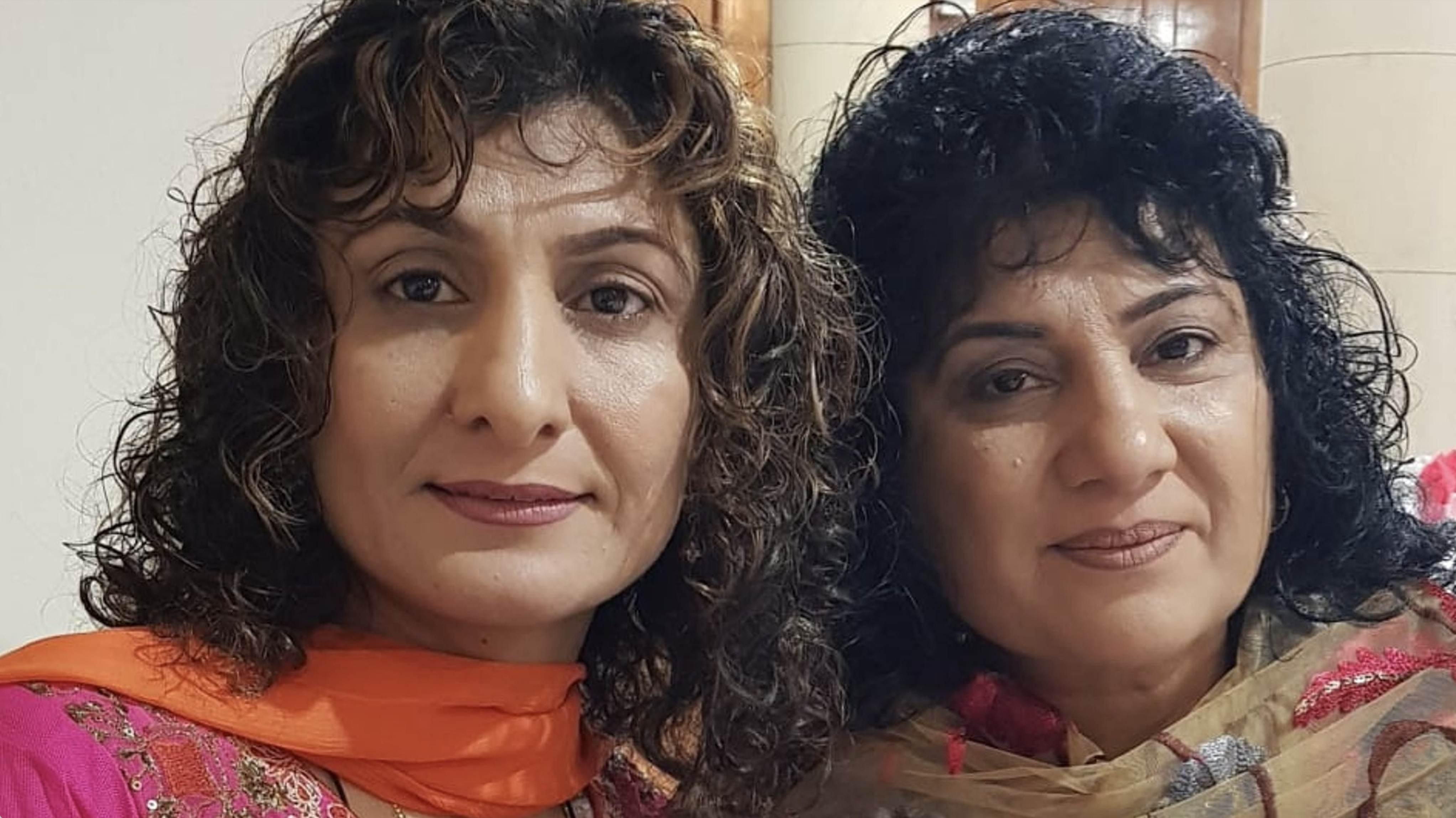
Why is this still happening in 2021?
Because there’s a powerful rationale to the entente cordial between the political parties, who become the ruling class, at one point or another, and the ethnic leadership. It predisposes interest groups from the mainstream communities and the ethnic minority leadership guaranteed positions of power, which otherwise would require the mobilisation of enormous populations.
In the absence of group-consciousness around specific grievances, the distinct possibility of restitutive democracy is subverted from within a benign political order through informal political networks. Political parties co-opt the community leaders from the dominant groups. This is one way of murdering democratic norms from within a genuine democratic system, it is an unintended consequence. Democracy becomes the semblance of ethnic representation for dispossessed minority groups (within minorities), and not the reality of voter participation.
For political parties garnering the ethnic vote, they want to consolidate their vote-banks to win elections. It seems the Labour Party has little concern for the welfare of ordinary British Pakistanis, never getting a fuller picture of the sorts of Pakistanis it empowers to ensure ethnic votes.
Let’s test this priority?
Will the Labour Party of Sir Keir Starmer go on record and say, like scholars in genocide studies, that the Pakistan State in 1971 committed a gruesome genocide against East Pakistanis, who were mobilising decades earlier to preserve their language (ethnic status)? 3 million Bengalis were murdered and 200 to 400 thousand women were raped. After 1971, East Pakistanis were identified as Bengalis. They left the Pakistan Project, and have never since looked back.
The Labour Party views the British Pakistani and Bengali communities in ethnic voting terms, and not as people with their own set of convictions and lifestyles. The British Pakistani identity is, however, subsumed within priorities that link it with Pakistan. For the community leaders, it has been about empowering themselves through state-enforced opportunities; one can see a direct correlation between local councillors and mosque committees; Pakistan and Islam are seen as one and the same thing, wrongly I add. It can be argued convincingly that Pakistan has been a curse for ordinary Muslims since 1947. Ethnic tokenism in the UK has thus become an overriding factor for the political parties, power being the overriding consideration.
Today’s minorities within minorities are forcibly tethered to the false semblance of representation through the dominant minorities, whilst their values and lifestyles remain unrepresented.
If this isn’t a 21st century farce, I don’t know what is.


